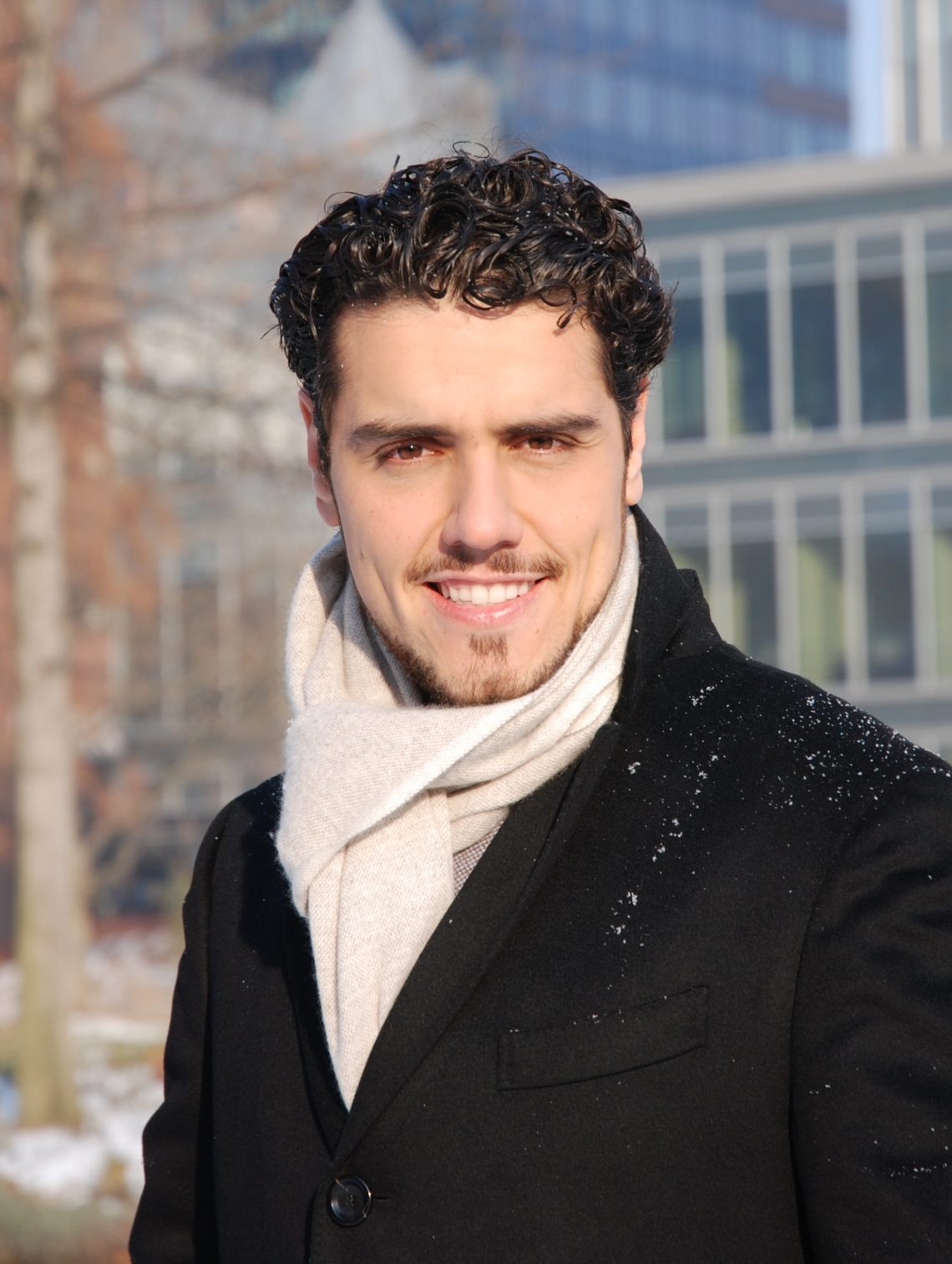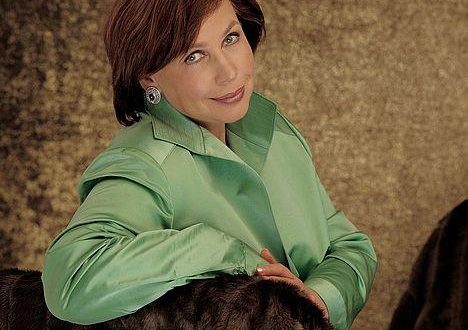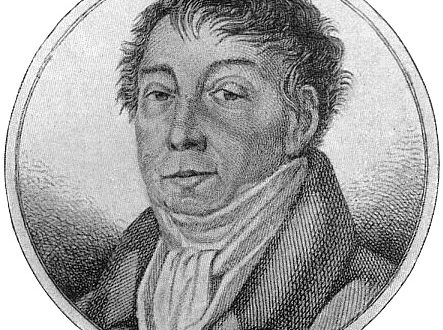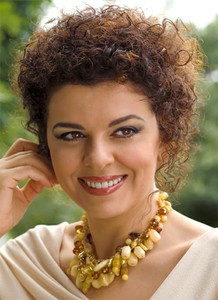
Thiago Arancam |
Thiago Arancam
The basis of the musical profession Italian-Brazilian tenor pushed lyric Thiago Arancam began to master in 1998 at the Municipal School of Music of Sao Paulo (Brazil), then continued his studies at the Carlos Gomez University of Music, from which he graduated with a degree in academic singing in 2003. He prepared all his repertoire available at that time under the guidance of maestro-teacher Bruno Roccella. In 2004 in my homeland – at the age of only 22 years old! – Thiago Arancam was awarded the prestigious Discovery Prize in Belém at the V International Vocal Competition named after the outstanding Brazilian singer Bidu Saiyan (1902-1999). In this regard, he also received a scholarship from the VITAE Foundation, which allowed him to devote himself entirely to opera singing.
In October of the same year, he was invited to take courses to improve vocal technique at the Academy of Young Singers at the La Scala Theater, which was then headed by one of the greatest sopranos of the 1928th century, Leila Gencher (2008 – 27), and became the first Brazilian to study there. It was here that he found his vocal coach Vincenzo Manno, who remains his mentor to this day. The debut of the performer in public took place on February 2005, 24 in one of the concerts through the La Scala Academy. Participation in such concerts, which are a practical area of educational activity, was subsequently successfully continued. During the time spent at the La Scala Academy, the singer also took part in a number of opera productions of the theater, performing the comprimario parts. Thiago Arankam received a diploma of graduation from this prestigious vocal institution on June 2007, XNUMX.
In the same year, he performed with the Friuli Venezia Giulia Symphony Orchestra of Italy, performing a program of fragments of zarzuelas and classical Spanish songs, and received a prestigious award in Bolzano, becoming a discovery among young voices (Alto Adige Prize “Rising Operatic Talent 2007 / 2008”).
The debut of Thiago Arancam on the stage in the main opera part took place in December 2007. This happened in Italy – and we are talking about the role of Roberto in Puccini’s opera “Willis”, performed in the theaters of Novara and Mantua. In 2008, with the orchestra of the La Scala Theater Academy, the singer took part in a tour in the United Arab Emirates, and in his homeland he performed in two concerts with the orchestra Camerata Brasil directed by Silvio Barbato. However, the most important creative achievement of the singer of the same year was his amazingly successful performance at the Placido Domingo Operalia competition in Quebec, which brought the young singer II place in the main opera program, the Prize for the best performance of the zarzuela and the Audience Award.
These victories did not go unnoticed – and literally following Operalia in 2008, the singer’s debut at the Washington National Opera followed: he performed the part of Jose in Bizet’s Carmen under the baton of Julius Rudel. In 2009, Thiago Arancam made his debut as Mario Cavaradossi in Puccini’s Tosca (Frankfurt), Maurice of Saxony in Cilea’s Adrienne Lecouvreur (Turin), Radamès in Verdi’s Aida (Sanxet Opera Festival, France), Pinkerton in Madame Butterfly” Puccini (Valencia). In addition, in the same year, his recital took place at the London St. John’s and two concert performances of “Carmen” in Kuala Lumpur with the Malaysian Philharmonic Orchestra.
In 2010, Thiago Arancam made his debut in Verdi’s Nabucco in Palermo (Izmail), in Mascagni’s Rural Honor on the stage of the Mikhailovsky Theater in St. Petersburg (Turiddu), in Puccini’s Cloak in Riga (Luigi), in Norma Bellini in Sanxe (Pollio), as well as in Alfano’s Cyrano de Bergerac in San Francisco (Christian), where Placido Domingo was his stage partner in the title role. There were also concert performances of Leoncavallo’s Pagliacci in Stockholm (conducted by maestro Daniel Harding), Tosca in Las Palmas (conducted by Pier Giorgio Morandi) and Carmen in Warsaw.
In mid-January 2011, Thiago Arankam sang “Carmen” in Moscow on the New Stage of the Bolshoi Theater, then his Jose was heard in Zurich, Sanxe and San Francisco. The singer’s performances also took place at Madama Butterfly in Washington (under the direction of Placido Domingo), at Tosca in Philadelphia, Frankfurt, Berlin (German opera), Rome (The Baths of Caracalla) and Rio de Janeiro. In Dortmund, he gave a concert, the program of which was arias from operas by Verdi and Puccini. The year 2011 ended with the return of the singer to the New Stage of the Bolshoi Theater in the part of Jose.
2012 began for him with a debut at the Lyon Opera (The Cloak) and a concert performance of The Country Honor in Stockholm (under the direction of maestro Daniel Harding), and at the end of February continued with an unplanned debut at the Vienna State Opera as Jose (invitation from the directorate was received due to force majeure replacement of the performer of the main part). This year, Puccini’s Manon Lescaut will also be performed by Thiago Arancam in Philadelphia (Des Grieux), returning to the stage in Berlin German opera (this time in Carmen), as well as Tosca on the stages of the Royal Swedish Opera in Stockholm (conducted by Pier Giorgio Morandi) and the Great Hall Hyogo Performing Arts Center in Osaka (Japan).
The performer’s future engagements for 2013 include debuts at the Bavarian State Opera in Munich (Carmen) and Sempeoper in Dresden (new production of Manon Lescaut, directed by Christian Thielemann). Thiago Arankam will then return to play Chevalier de Grieux in 2014 for his debut at the Baden-Baden Easter Festival (new production directed by Sir Simon Rattle). And in 2015, the singer is expected to make his debut at the Salzburg Easter Festival in Rural Honor – again under the baton of Christian Thielemann.
Source: Thiago Arancam. Biografia / Biography: Release of the singer’s official website (port., ital. and eng.). The Russian version is in the translator’s edition as of March 15.03.2012, XNUMX.





